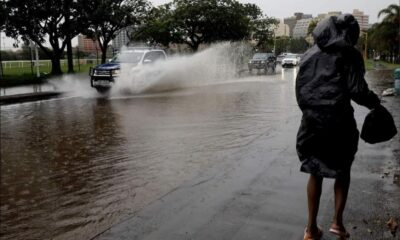News
Shell’s West Coast Oil Battle Heads Back to Court as Communities Push Back

A New Round in South Africa’s Oil Fight
The battle over oil drilling off South Africa’s West Coast is far from over. Shell and the Department of Petroleum and Mineral Resources (DPMR) are heading back to court, seeking to overturn a ruling that blocked the oil giant from drilling offshore.
This comes after a High Court judgment in August 2025 found that the government’s approval of the project was “deeply flawed” and ignored critical environmental and social protections.
Why the Court Said No
The ruling was seen as a landmark victory for environmental groups. Judges pointed to five key failures in the authorisation process, including:
-
No proper study of potential disaster impacts on local communities
-
Ignoring coastal protection laws
-
Failing to properly assess climate change risks
-
Overlooking cross-border environmental harm
-
Keeping the public in the dark about emergency response plans
The case was brought forward by advocacy organisations Green Connection and Natural Justice, who argued that communities living along the West Coast had been sidelined in decisions that could reshape their environment and livelihoods.
The Push to Appeal
Now, Shell, the Minister, and the Director-General of DPMR have filed applications for leave to appeal, hoping to move the case either to the Supreme Court of Appeal or to a full bench of the High Court.
Environmental activists have expressed frustration at the decision. Shahil Singh, Legal Advisor to the Green Connection, described it as “disappointing,” but said they remain hopeful the court will uphold its ruling.
“Without the public having had a meaningful opportunity to interrogate the full, updated Oil Spill and Blowout Contingency Plans, we do not see how this can be granted,” Singh said, pointing to a lack of transparency in Shell’s emergency preparedness.
Communities and Climate at the Centre
The standoff has put coastal communities at the heart of the debate. Small-scale fishers and tourism operators argue that drilling puts their livelihoods at risk, while climate activists warn that South Africa cannot afford to lock itself into new fossil fuel projects as the world shifts to renewables.
On social media, the response has been clear. Environmental campaigners hailed the earlier High Court decision as a win for “climate justice” and human rights. Memes and hashtags like #StopShell and #ProtectOurCoast trended on X (formerly Twitter), reflecting growing public frustration with what some see as corporate interests trumping community voices.
Not Shell’s First Legal Setback
This is not Shell’s first courtroom defeat in South Africa. In a separate case last year, the Constitutional Court ruled that seismic surveys planned along the Wild Coast were unlawfully authorised, citingonce againa lack of public consultation and inadequate environmental safeguards.
Despite these legal battles, Shell has signalled its intent to remain in the upstream business of oil exploration. However, the company has announced plans to sell its downstream operations, which include 600 petrol stations across South Africa. Reports suggest possible buyers from Abu Dhabi and Switzerland are circling.
What Happens Next
The High Court will now decide whether to allow Shell’s appeal to go forward. If refused, Shell and the DPMR may still petition a higher court.
Until the appeals process is complete, the 13 August judgment stands, keeping drilling on hold. For now, the West Coast remains untouchedbut whether it stays that way depends on the next round of legal wrangling.
Source:Business Tech
Follow Joburg ETC on Facebook, Twitter , TikTok and Instagram
For more News in Johannesburg, visit joburgetc.com


























